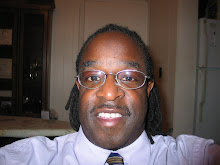Going to Citi Field and seeing the pictures of those old Met players from the championship teams inspired me to put together a listing of the greatest Mets, by position. But before you get ready to go off on me, know that I am not considering several of the all-time greats who spent twilight years in a Met uniform, people like Warren Spahn; Duke Snider; Willie Mays; Rickey Henderson; and Gary Sheffield, who just hit his 500th homer for the Mets last week. Anyway, we'll get started where the game always starts - on the mound.
Right-Handed Starter - When you look at Tom Seaver's stats, a first ballot Hall of Famer, star of the '69 championship, it would seem that there's no other choice...except for the fact that there have been few periods anywhere like the electric first few Dwight Gooden years at Shea. In '85 Doc put up the greatest year by a pitcher you've ever seen - unless you remember Bob Gibson's 1968 - and he was the ace on the '86 championship team. So I'll have to name both Seaver and Gooden.
Left-Handed Starter - Jerry Koosman was outstanding, as was Jon Matlack, whose career was probably shortened due to injuries. Sid Fernandez had some of the nastiest stuff when he was on, but I think this one has to go to the current ace, Johan Santana.
Closer - Mets have had their share of good ones, like Roger McDowell, John Franco, Billy Wagner and Tug McGraw, whose "You Gotta Believe" was the rallying cry for the team's '73 comeback. And certainly new closer Francisco "K-Rod" Rodriguez may turn out to be the best of all...but since he just arrived, I'm going with Jesse Orosco, famous forever for the final strikeout in '86.
Honorable Mention: Roger Craig, Jack Fisher, Al Jackson. You had to be pretty good to get the ball enough to lose as many games as they did on those horrible early Met teams.
Catcher - Mike Piazza was the face of the franchise for several years, and will enter the Hall as a Met, so he's the choice. But the 1985 Gary Carter trade was akin to the Dave DeBusschere Knicks trade in the '60's, bringing one of the final pieces in the puzzle leading to the '86 title. Carter gets the top Honorable Mention, while defensive wiz Jerry Grote gets the other.
First Base - Keith Hernandez was outstanding with the glove, money in the bank when he came up in the clutch, and a key member of the '86 team.
Honorable Mention: Ed Kranepool, Donn Clendenon, John "The Hammer" Milner, John Olerud, Carlos Delgado.
Second Base - The toughest choice...because the best player the Mets have had at second has been José Reyes during the first year that Kaz Matsui came from Japan and insisted on playing short...but I'm going with Edgardo Alfonzo, with the honorable mention to Felix Millan. "Runner-Up" honorable mention to the '86 combo of Wally Backman/Tim Teufel, as well as Ron Hunt.
Shortstop and Third Base - José Reyes & David Wright are the obvious choices, with the expectation that their body of work over the next ten years will place them in comparison with the greats at their positions.
Honorable Mention: Shortstops - Bud Harrelson and Rey Ordoñez were outstanding with the glove, but Ordoñez rates special commendation for having a video produced just of his defensive play. "Runner-Up" honorable to José Oquendo, who had a short Met career but possibly the best glove man of all.
Third Base - Howard Johnson, Hubie Brooks, Ray Knight, Robin Ventura, Lenny Randle.
Left Field - Despite the shoddy way he was ushered out of Shea, my choice is Cleon Jones, along with Kevin McReynolds.
Center Field - Carlos Beltran is the best all-around player the Mets have had there...but honorable mentions must go to World Series heroes Tommie Agee, Lenny "Nails" Dykstra, and Mookie Wilson, the original triples/stolen base man before José Reyes.
Right Field - You may have loved him, or not - but you never went for a snack when Darryl Strawberry, the most feared slugger and best position player to emerge from the Met organization, was about to come up to bat. Strawberry Field Forever.
Honorable Mention: "Le Grand Orange," Rusty Staub.
There you have it. If you think I'm off, let me know!

